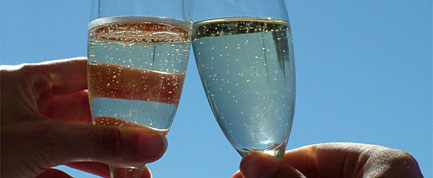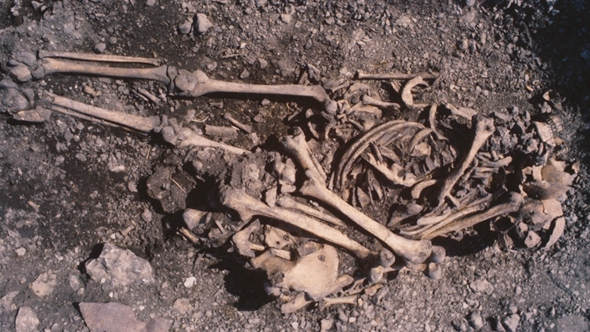Alcohol's Memory Impairment Not Due to 'Killing Brain Cells'

Get the world’s most fascinating discoveries delivered straight to your inbox.
You are now subscribed
Your newsletter sign-up was successful
Want to add more newsletters?

Delivered Daily
Daily Newsletter
Sign up for the latest discoveries, groundbreaking research and fascinating breakthroughs that impact you and the wider world direct to your inbox.

Once a week
Life's Little Mysteries
Feed your curiosity with an exclusive mystery every week, solved with science and delivered direct to your inbox before it's seen anywhere else.

Once a week
How It Works
Sign up to our free science & technology newsletter for your weekly fix of fascinating articles, quick quizzes, amazing images, and more

Delivered daily
Space.com Newsletter
Breaking space news, the latest updates on rocket launches, skywatching events and more!

Once a month
Watch This Space
Sign up to our monthly entertainment newsletter to keep up with all our coverage of the latest sci-fi and space movies, tv shows, games and books.

Once a week
Night Sky This Week
Discover this week's must-see night sky events, moon phases, and stunning astrophotos. Sign up for our skywatching newsletter and explore the universe with us!
Join the club
Get full access to premium articles, exclusive features and a growing list of member rewards.
A night of drinking and dancing can end in some fuzzy or missing memories of the evening, and researchers have long wondered why. Popular opinion blames the killing of brain cells, but new research finds that isn't true.
Very high alcohol levels can cause unconsciousness, by shutting down the parts of your brain that control your breathing. The new research looked at less serious but still heavy drinking and those frustrating blank spots in the memory that result.
"Alcohol isn’t damaging the cells in any way that we can detect," said study researcher Charles Zorumski, of the Washington University School of Medicine in St. Louis. "As a matter of fact, even at the high levels we used here, we don’t see any changes in how the brain cells communicate."
So what happens?
"You still process information. You’re not anesthetized. You haven’t passed out," Zorumski said. "But you’re not forming new memories." [Alcohol and Hangover Myths Revealed]
Blocking memories
Even high levels of alcohol applied directly to brain cells didn't damage them, the researchers found in the study, which involved the brains of rats. Instead the researchers found that large amounts of alcohol cause brain cells to release steroids that block the formation of long-term memories ? a process called long-term potentiation, or LTP.
Get the world’s most fascinating discoveries delivered straight to your inbox.
"It takes a lot of alcohol to block LTP and memory," Zorumski said. "The alcohol triggers these receptors to behave in seemingly contradictory ways, and that’s what actually blocks the neural signals that create memories. It also may explain why individuals who get highly intoxicated don’t remember what they did the night before."
The specific brain cells involved in the memory-making process are located in the hippocampus region. When bathed in alcohol, these brain cells lose their ability to connect and communicate with other brain cells. The connections are what underlie all memories. If the connections can't be made, the memories of experiences can't be saved.
Brain cells on booze
The researchers exposed rat brain cells to varying levels of alcohol. It wasn't until they reached "large amounts" of alcohol that the memory-making machinery was affected. At low levels they didn't see any change in the cells' ability to connect with each other.
The alcohol seems to interfere with receptors (proteins that sense what's going on outside of the cell) on the brain cells, blocking the actions of some and activating others. The activated receptors tell the brain cell to make these memory-blocking steroids.
When the researchers blocked the formation of these steroids, the rat brain cells could still make memories, even at high alcohol levels. The drugs used to stop the steroid-making process were commonly used prostate-reduction drugs.
Keeping memories
“We would expect there may be some differences in the effects of alcohol on patients taking these drugs,” study researcher Yukitoshi Izumi, also of Washington University School of Medicine, said. “Perhaps men taking the drugs would be less likely to experience intoxication blackouts.”
This might be the same process that causes memory loss caused by other drugs and high stress levels, or even in diseases that lead to memory loss. If that's true, drugs related to those used in the study could prevent memory loss. The only catch? The researchers aren't sure these drugs can reach the brain in a living animal.
And the drugs might stop memory loss, but they wouldn't stop the hangovers.
The study was published July 6 in the Journal of Neuroscience.
You can follow LiveScience staff writer Jennifer Welsh on Twitter @microbelover. Follow LiveScience for the latest in science news and discoveries on Twitter @livescience and on Facebook.
Jennifer Welsh is a Connecticut-based science writer and editor and a regular contributor to Live Science. She also has several years of bench work in cancer research and anti-viral drug discovery under her belt. She has previously written for Science News, VerywellHealth, The Scientist, Discover Magazine, WIRED Science, and Business Insider.
 Live Science Plus
Live Science Plus











